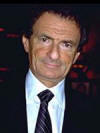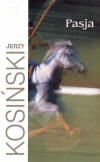General Józef Wybicki
Junior High School
Number 24 in Lodz

European citizens in my city,
the citizens of my city in Europe.
Liceo Scientifico "Pitagora" Rende, Italy

Jews / German / Polish / other nationalities /
art and culture / sportsmen / writers and poets / musicians / scientists / businessmen / others /
JEWS
- Izrael Kalmanowicz Poznański
- Marek Edelman
- Max Factor
- Ary Sternfeld
- Jerzy Kosinski
- Artur Rubinstein
- Julian Tuwim
- Jurek Becker
Jerzy Kosinski was a name bestowed upon him by his father while they were hiding from the Nazis, original name: Josek Lewinkopf. He was a Polish-Jewish English-language novelist, who acquired American citizenship.
He was born on 18 June, 1933 in Lodz. As a child during World War II, he survived under a false identity in a Roman Catholic Polish family in eastern Poland. A Roman Catholic priest had issued him a forged baptismal certificate.
After World War II, Kosinski was reunited with his parents and earned degrees in history and political science in Poland (at the University of Lodz). He worked as an assistant at the Polish Academy of Sciences (Institute of History and Sociology), and in 1957 emigrated to the United States.
He graduated from Columbia University, and was a fellow of Guggenheim (1967), the Ford (1968), and the American Academy (1970).
In the USA he was a lecturer at Yale, Princeton, Davenport University, and Wesleyan. In 1965 he became an American citizen.
In 1962 he married the eighteen years his senior American steel heiress Mary Hayward Weir, who in 1968 died of brain cancer. He later married Katherina von Fraunhofer, a descendant of Bavarian aristocracy.
Kosinski is perhaps best known for his novels The Painted Bird (1965), Steps (1968), and Being There (1971). Almost all of Kosinski's novels were on the New York Times Best Seller list, and they were translated into over 30 languages, with total copies estimated at 70 million in 1991.
In 1979 Kosinski told a
reporter: "I'm not a suicide freak, but I want to be free. If I ever
have a terminal disease that would affect my mind or my body, I would
end it."
Kosinski committed suicide on May 3, 1991, by taking a fatal
dose of barbiturates and his usual rum-and-Coke, twisting a plastic
shopping bag around his head and taping it shut around his neck (a
method of suicide suggested by the Hemlock Society), and lying down to
die in water in the bathtub in his West 57th Street New York apartment.
His parting suicide note read: "I am going to put myself to
sleep now for a bit longer than usual. Call the time Eternity."
(Newsweek, May 13, 1991).
MALOWANY PTAK, 1989;
(THE PAINTED BIRD, 1965)
KROKI, 1990; (STEPS, 1968)
WYSTARCZY BYC, 1990; (BEING THERE, 1971)
DIABELSKIE DRZEWO, 1991; (THE DEVIL TREE, 1973)
COCKPIT, 1992; (COCKPIT, 1975)
RANDKA W CIEMNO, 1992; (BLIND DATE, 1977)
PASJA, 1993; (PASSION PLAY, 1979)
GRA, 1993; (PINBALL, 1982)
PUSTELNIK Z 69 ULICY, 1992; (THE HERMIT OF 69TH STREET, 1988)



